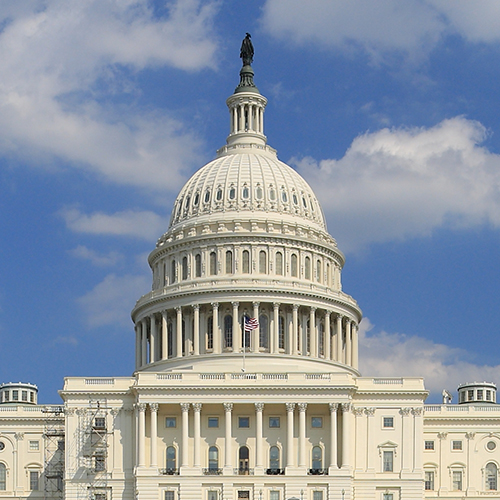After the economy took a nosedive in 2008, Jim Gregory was suddenly in high demand. Gregory, professor of history, was invited to speak to community groups and government leaders about lessons learned from the 1929 stock market crash and the economic collapse that followed.
This renewed interest in the Great Depression took Gregory by surprise. “From the 1980s on, historians weren’t writing books about the Great Depression,” he says. “It had become really old history that didn’t seem relevant anymore. But boy, did it flash back to relevance in September 2008. It’s been one of those rare moments when an historian is asked for lessons from the past.”

Gregory, realizing that the subject was ripe for further exploration, launched The Great Depression in Washington State project with support from the Simpson Center for the Humanities. Central to the project is a website for educators and the general public that explores the relationship between that era and the current economic situation. Also planned is a pair of staged readings of Depression-era plays organized by Mark Jenkins, professor of drama, and Sarah Nash Gates, director of the School of Drama.
“The Great Depression was a fundamental turning point in Washington state,” says Gregory. “It’s when the state shifted from Republican domination to Democratic domination, and when the stage was set for it to become an industrial center, largely due to the dams and other infrastructure projects built by the federal government.” Gregory explains that while the aerospace and shipping industries flourished in Washington state following World War II, they would not have been possible without the infrastructure created in the 1930s.
To build a content-rich website about this period, Gregory and project coordinator Jessie Kindig, a graduate student in the Department of History, are tapping a ubiquitous campus resource: students. They are incorporating publication-worthy student essays, written as class assignments or senior theses, on the website. This approach has proven effective for Gregory’s previous web projects, including the frequently visited Seattle Civil Rights and Labor History Project.
What can visitors to The Great Depression in Washington State website expect to find? There’s a Who’s Who section with short biographies of major political and cultural figures, an event timeline, and information on everything from the end of prohibition to the impact of the Great Depression on UW students. There are photographs, including images by Dorothea Lange, who photographed rural poverty in Washington’s Yakima Valley in the late 1930s. Student essays provide more information about Lange and other noteworthy figures, including songwriter Woody Guthrie, who was hired to help publicize Washington’s Bonneville and Columbia Dam projects.

“I think we’re going to end up with a very valuable guide to the huge changes this state went through due to the Great Depression,” says Gregory.
About the time Gregory was first mulling the idea of a website to explore parallels between the current economic downturn and the Great Depression, Jenkins was having similar thoughts. “I remember thinking, ‘What would be better than seeing what people did that first time around—showing how people responded and how was that reflected in theatre’?” says Jenkins. From that grew the idea of staged readings of Depression-era plays.
Jenkins spoke with Gregory, with whom he had collaborated on a previous project, and they decided to combine their efforts. Drama graduate student Sarah Guthu is now researching and writing a section on Depression-era theatre arts for The Great Depression in Washington State website; Jenkins is selecting two plays to be presented as staged readings in February 2010.
“Despite the devastation of the Great Depression, the 1930s were a time of experimentation in theatre,” says Jenkins. “There was sort of a relish and fervor in the arts.” Jenkins first choice for the readings: Waiting for Lefty by Clifford Odets, a gritty story about taxicab drivers on strike. “In the original production, the audience leapt out of their seats with the longest ovation in theatre history—like a 20-minute ovation,” he says. The second staged reading will be End of Summer by S. N. Berman, about a well-to-do family’s responses to the 1930s.
“We chose to present these as staged readings with no costumes or sets due to budget cuts,” explains Jenkins. “It’s a different experience, because the audience is more hearing than seeing the play. But people enjoy that. It stimulates their imagination. And it helps the actors develop their skills because they must put more energy into the phrases being said, primarily using their voices to convey the role.”
As part of The Great Depression in Washington State project, the opening night of Waiting for Lefty, February 18, will include a pre-performance panel with UW faculty experts from various departments discussing the Great Depression. For those whose interest is piqued by the panel, Gregory encourages a visit to the website to learn more.
“There’s plenty to explore, and more information is being added all the time,” says Gregory. “It’s not like publishing a book that’s a complete entity that never changes. We will continue to add to the website.”
To explore the website, The Great Depression in Washington State, visit http://depts.washington.edu/depress.
More Stories

Is This Presidential Campaign Different?
UW History professor Margaret O'Mara provides historical context for this moment in US presidential politics.

Making Sense of This Political Moment
To navigate this momentous election season, Arts & Sciences faculty suggest 10 books about the US political landscape.

A Statistician Weighs in on AI
Statistics professor Zaid Harchaoui, working at the intersection of statistics and computing, explores what AI models do well, where they fall short, and why.